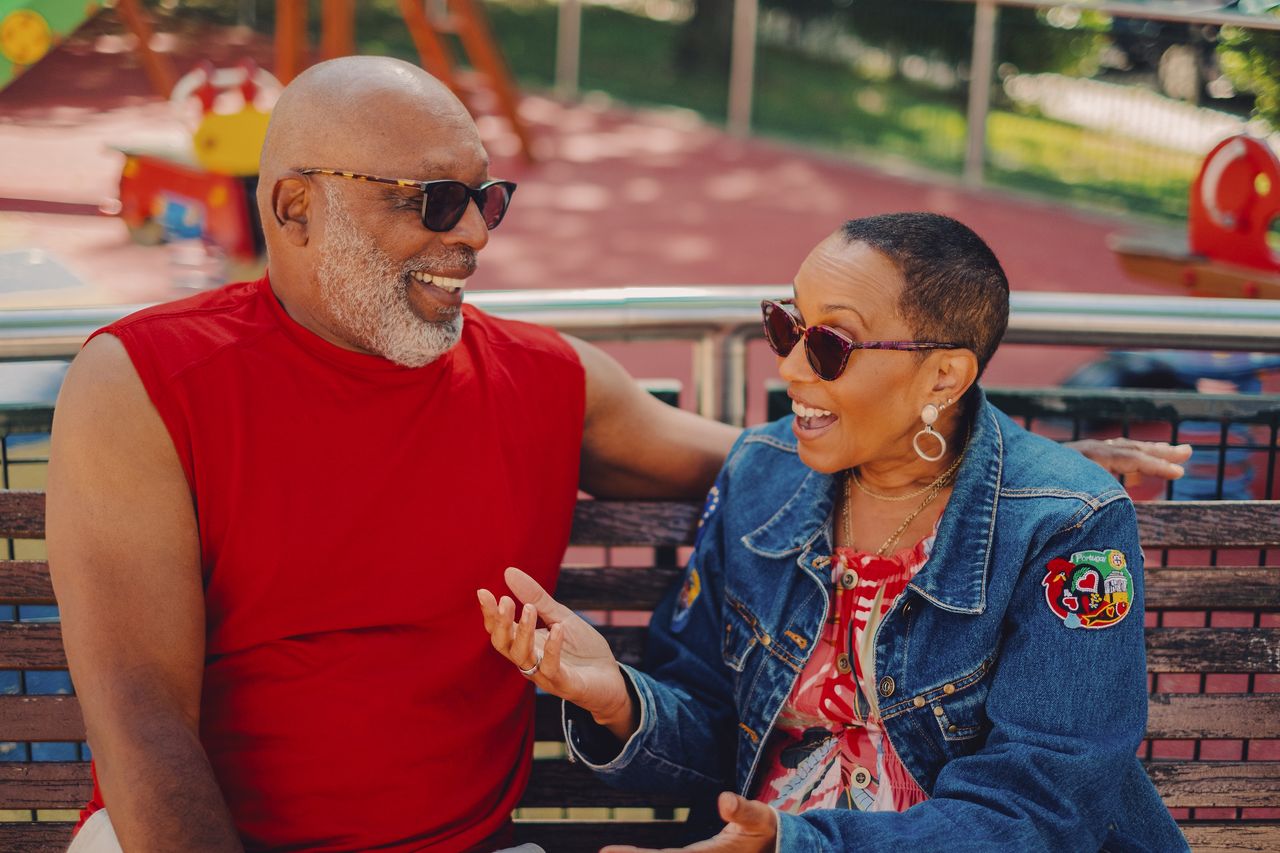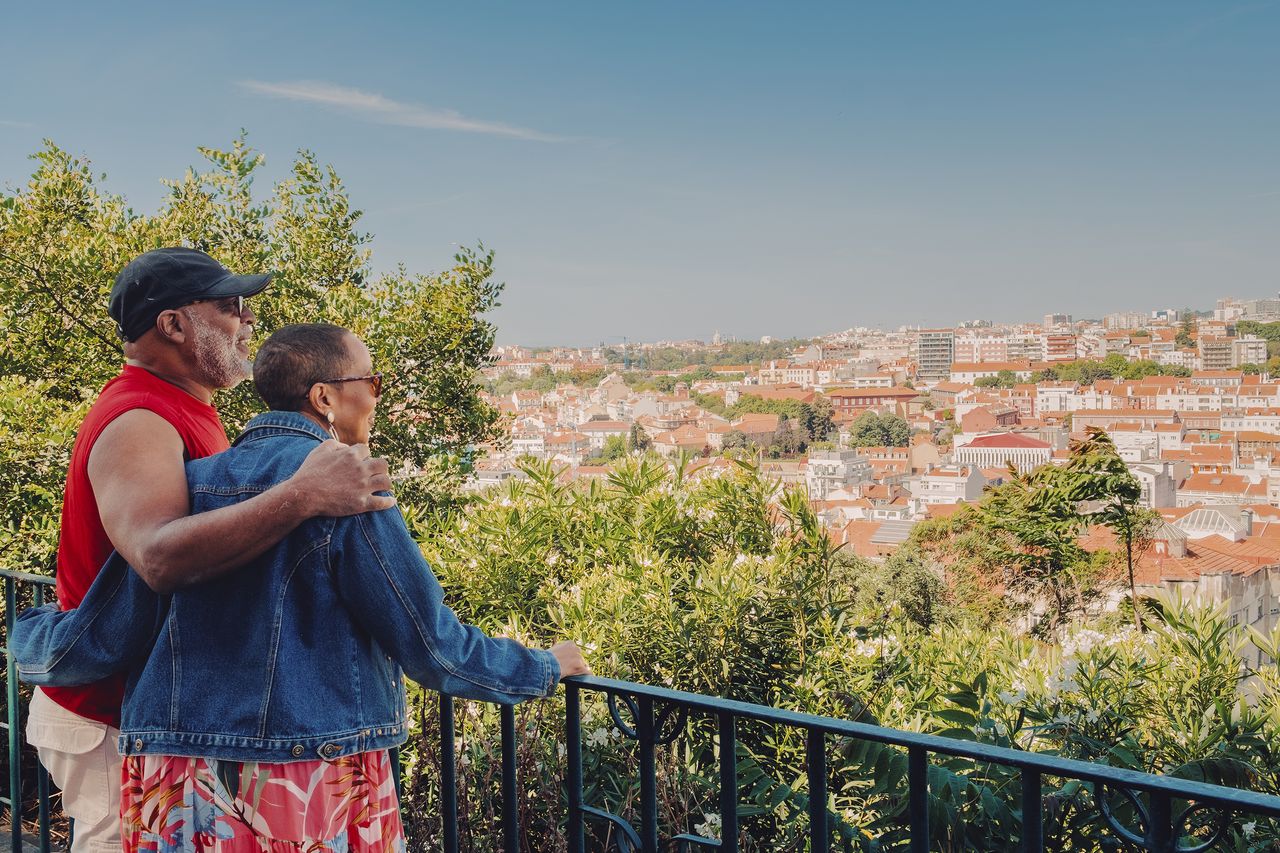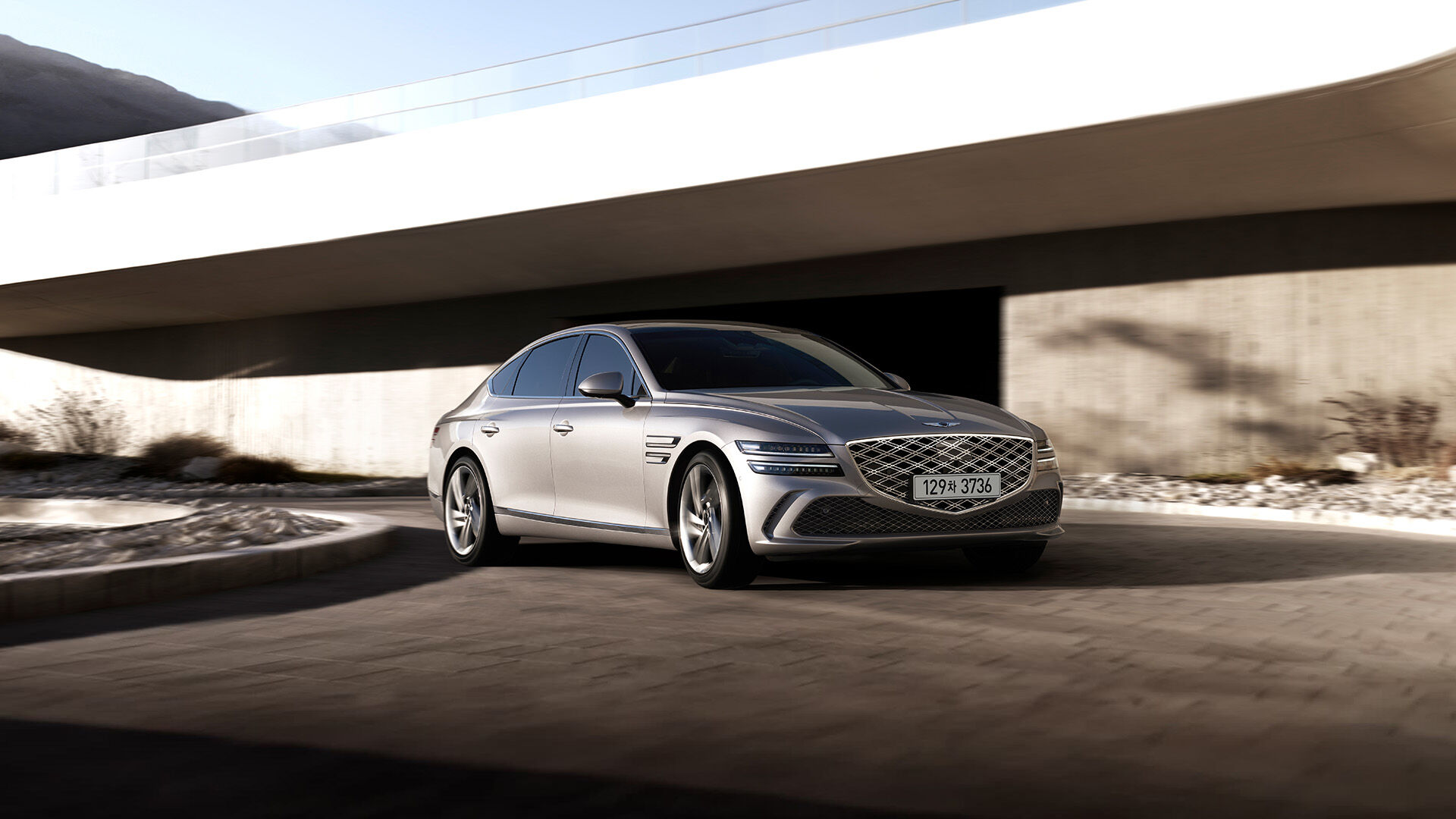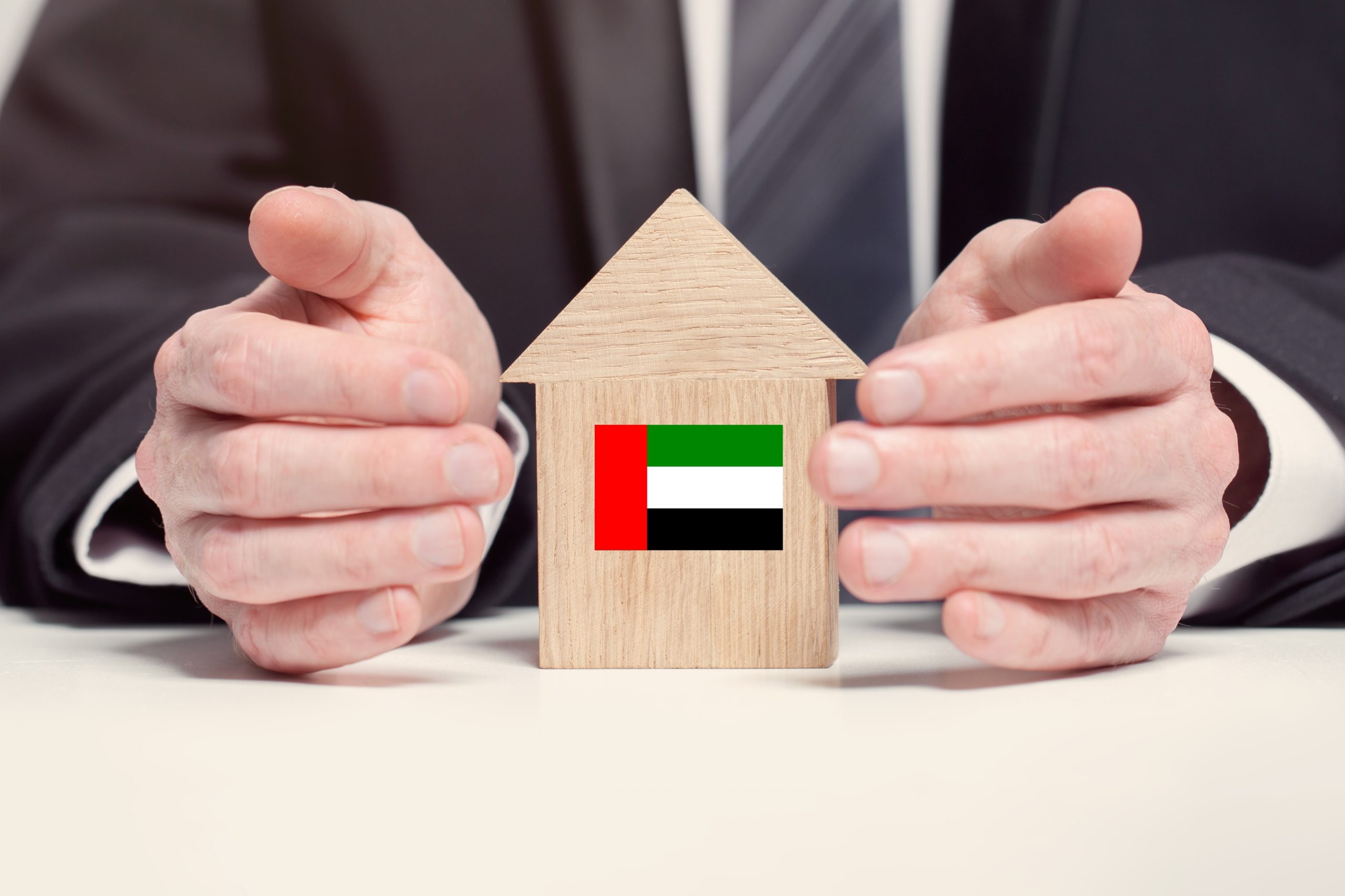Here’s What It Looks Like When Americans Retire Overseas
Six retirees open up about the financial and personal challenges of relocating abroad in retirement
Many Americans dream of retiring overseas, and more are packing their bags.
Whether seeking adventure, self-reinvention, or just a lower cost of living, international retirees face a unique set of money and life challenges. And paperwork.
It is unclear how many Americans actually retire abroad, but where people collect their Social Security checks provides a ballpark figure. Nearly 450,000 people received their benefits outside the U.S. at the end of 2021, up from 307,000 in 2008, according to the Social Security Administration, which says nearly half are U.S. citizens.
Once a fringe idea, retiring abroad has gone mainstream, said Kathleen Peddicord, founder of Live and Invest Overseas, which provides information on subjects including healthcare quality and the cost of living in various countries. Because many Americans living overseas have their Social Security checks deposited into U.S. bank accounts, government data likely understates the trend, she said.
The strong dollar has made many countries seem affordable, said Peddicord. Many countries have visas designed for retirees. Typically, they require applicants to disclose income and assets to prove they won’t become a financial burden. Other hurdles include leaving children and grandchildren, she added.
We spoke in depth with six retirees who relocated to France, Portugal, Spain and Costa Rica. With savings ranging from $70,000 to $1.8 million, they prove that an overseas move doesn’t require a massive nest egg. They shared insights about their spending and routines, the challenges of building a new life, and what has given them joy or anxiety along the way.
Retiring abroad took Rick Jones and Ellen Bryson two tries.
The couple moved to Buenos Aires in 2006 after realising during a vacation that they could afford to retire there despite being in their 50s at the time. They sold their Washington, D.C., apartment for about $900,000 and bought a sprawling place in Buenos Aires, where parrots perched in the trees outside their windows.
Yet the novelty eventually wore off, and while Bryson, 73 years old, was writing a novel, “I didn’t have a purpose for getting out of bed in the morning,” said Jones, now 71 and a retired Navy SEAL officer.
They returned to the U.S., but in 2016 Bryson came home from a French class with a new destination in mind: Paris.
The couple, who have no children, took two years to plan the move, selling their Norfolk, Va., home.
They joined the Association of Americans Resident Overseas and other expatriate organisations to learn about things including applying for French visas and renting an apartment. The social ties they forged “provided a support system during the pandemic,” said Bryson.
Jones sets annual goals that give him a sense of purpose. He took up the flute and regularly engages in conversation exchanges with native French speakers. To explore Paris, he and a friend walked the routes of the city’s many Metro lines, finishing each one in a day.
Bryson takes Pilates and French and is writing her third novel.
The two enjoy their local food market: the butchers who specialise in organ meats and wild game and a dairy farmer who sells unpasteurised milk that tastes like ice cream, said Jones.
Recently, he became president of WICE, a Paris-based group that connects English- and French-speaking communities. He volunteers a couple hours a day for the organisation.
The downside to living in France? Paperwork, said Jones, who reserves time every morning for forms, from tax returns to applications for driver’s licenses.
“To rent an apartment we had to put together a giant stack of forms going back years,” he said.
The couple have long-stay visas they renew annually, requiring them to show they have enough income to support themselves and to promise they won’t work for pay in France. Next year, they will qualify to apply for a visa that’s valid for 10 years.
Each month, they receive $4,300 from Social Security, about $5,000 from Jones’s military pension, and about $4,000 from a retirement account. They have no debt.
Their two-bedroom apartment with views of the Eiffel Tower costs about $3,100 a month. Under France’s national health insurance system, they pay a percentage of the cost of services. They receive supplementary coverage from the U.S. military.
Food costs about $1,100 a month, including two or three restaurant meals. Each month, they spend $375 for Bryson’s Pilates, $350 for Jones’s flute lessons and $230 for French lessons. They have budgeted around $6,500 for trips this year to Ireland and Marseille.
Jones said if either were to be diagnosed with dementia, they might move back to the U.S. to be near relatives. “We’d like to live out our days here,” he said.
Susan Wojcik, 62, fell in love with Costa Rica in 2001 on a vacation arranged by her housecleaner, a native of the country.
Wojcik and her former husband hiked near the Arenal volcano and stayed in the historic city of Alajuela. They were especially taken with a small Pacific coast beach town called Samara.
“They call Samara the black hole of happiness,” said Wojcik, a former resident of Southampton, N.Y. “If you come here and feel it, you never want to leave. I felt it.”
The couple divorced in 2015. She moved to Samara soon after, spending $235,000 of her $400,000 nest egg to buy land and build a small bed & breakfast with a pool surrounded by Hibiscus trees. She enjoyed chatting with guests over the tropical-fruit compote and cinnamon pancakes she cooked.
In 2019, Wojcik reconnected with a high school friend living in Atlanta. The two married in March 2020, just as lockdowns forced Wojcik to temporarily shut her B&B.
She was devastated when her husband, who had multiple sclerosis, died in November, 2020. In 2021, she sold the B&B and briefly moved to the U.S. to care for her ailing mother, who died that fall.
“I was just haemorrhaging money,” said Wojcik. “It was a traumatic time, but I am a resilient person. You have a choice: You can either be like, ‘Oh poor me,’ or you can think about the fact that ‘The sun rose today, my dogs are happy and we had a lovely walk on the beach.’”
Wojcik returned to Costa Rica and put the money from the sale of her business in the bank, where it earns 6% to 8% annually in interest. Her goal is to use the $70,000 that remains for emergencies.
While prices have risen, Wojcik says the $1,421 a month she receives from Social Security covers her expenses.
“I am very comfortable,” said Wojcik, who pays $700 a month for rent and utilities on a one-bedroom home and about $150 a month for food.
During tourist season, Wojcik often meets friends to listen to live music at local restaurants that charge about $15 for a meal.
Gas costs about $5.75 a gallon, but she doesn’t drive much. Wojcik recently obtained a residence permit and pays $90 a month to the public healthcare system for insurance.
Five friends from the U.S. live nearby but Wojcik has also become friends with locals. Her Spanish, at an eighth-grade level when she arrived, is now close to fluent.
Most days, she walks her dogs on the beach at dawn. She produces plays with a community theatre group she started in 2016.
The downside to living in Costa Rica is the inefficiency that can mean long lines at the bank and requirements to pay bills in person.
“If you can tolerate the red tape it’s paradise,” Wojcik said.
Matthew Coe, 60, moved to Barcelona about 13 years ago after working and traveling abroad. The former corporate lawyer worked remotely from Spain as a legal consultant, invested in local real estate, and last year started his own business.
His business, which helps international buyers find and redo homes around Barcelona, takes about 20 hours a week, on average, though some weeks he doesn’t work at all and that is the way he likes it. The job, which he expects to generate $50,000 in income this year, taps into his passion for design and brings him closer to the local community.
“I plan on never fully retiring,” he said.
He spends about $3,000 a month on food, utilities, public transportation, and other living expenses. His roughly 900-square-foot condo cost $400,000, and he pays about $1,000 a year for a private health insurance policy that he keeps in addition to the public insurance he receives through the regional Catalan government. He has no debt.
Coe, who is single with no children, grew up in eastern Washington state. His mother, who is in her 80s, and siblings still live in the U.S. Distance from family and some close friends is the part of living abroad that he finds most difficult. While video calls have made things easier, a big slice of his budget is allocated to travel—about $20,000—so he can maintain those relationships and take vacations.
If he was living in Seattle, Coe estimates his monthly expenses would be closer to $6,500 including travel and healthcare. He’d worry that the roughly $1.8 million he’s saved wouldn’t go as far, he said.
“My stress level in Spain is much lower as a result of the lower cost of living and an overall higher quality of life,” he said.
Still, he takes a conservative approach with his savings. About half of his $1.8 million is invested in certificates of deposit, short-term T-bills, money-market funds and cash. The rest is allocated to exchange-traded funds and individual company stocks.
Coe’s typical day might start with catching up on the news, then a pool swim followed by an open-air session with a personal trainer. He might head to a furniture workshop for interior design inspiration. A leisurely lunch with a friend at a neighbourhood public market, apartment viewings and a late afternoon walk might follow.
Although Coe could hold casual conversations in Spanish with local shopkeepers after six months, it took about two years before he became sufficiently fluent in Spanish to feel comfortable conducting a business negotiation. He’s currently learning Catalan.
About six years ago, Halisi Vinson and Ricardo Crawley realised their financial life needed a major change.
The wake-up call came in part after meeting with a financial adviser who told them they’d likely struggle in retirement if they didn’t boost their savings.
Vinson, now 58, and Crawley, now 67, had about $25,000 in credit-card debt and less than $50,000 saved in total for retirement at the time.
The Denver couple, who married about 20 years ago, blamed their excessive spending. They had a television in every room of their home and spent about $1,000 a month on meals out.
They thought they were doing well financially but when Vinson downloaded about three months of their credit-card statements, the couple was shocked they were spending more than they made.
They agreed to drastically cut back.
“I didn’t want to die in poverty,” said Vinson, the retired executive director of the Colorado Democratic Party.
They started buying more groceries, eating out far less and tracked their spending. They checked with each other before spending more than $100. They socked away about 60% of their income.
They eventually paid their credit-card debt and managed to increase their retirement savings to about $300,000—all in about six years.
They have six adult children between them and since most of them have moved away from Denver, the couple no longer felt anchored there.

After speaking to other Americans who had moved abroad and a one-month visit, the couple decided to move to Portugal. They enjoyed its slower pace and the 75-cent espresso, Crawley said.
They rented their Denver home to two of their adult children, making a profit of about $100 a month. They break even on the Los Angeles apartment they purchased about two years ago and rent to Vinson’s mother.
They have roughly $600,000 in mortgage debt. They eventually plan to rent both residences out at market rent, which will net them about $1,000 a month in total.
Crawley receives about $2,700 in Social Security. Vinson plans to take Social Security as soon as she’s able.
Living in Lisbon has helped them further trim spending. Expenses including rent and dining out run about $2,600 a month, about half what they’d expect to spend in the U.S.
They both feel at peace no longer constantly worrying about money. They enjoy hours-long, low-cost meals at local cafes with new friends, exploring Portugal or creating videos for their YouTube channel, which encourages other Black Americans to move abroad for a lower cost of living.
—Design by Andrew Levinson.
 Copyright 2020, Dow Jones & Company, Inc. All Rights Reserved Worldwide. LEARN MORE
Copyright 2020, Dow Jones & Company, Inc. All Rights Reserved Worldwide. LEARN MORE
Chris Dixon, a partner who led the charge, says he has a ‘very long-term horizon’
Americans now think they need at least $1.25 million for retirement, a 20% increase from a year ago, according to a survey by Northwestern Mutual
The G80 Sport makes its entrance, displaying dynamic design details and elevated automative capabilities.
Juma Al Majid LLC, the exclusive dealer for Genesis in the UAE, has launched the G80 – a cutting-edge luxury sedan. Merging tradition with innovation, this model embodies Genesis‘ relentless pursuit of superior design, state-of-the-art technology, and unmatched luxury.
The new G80 marks a significant milestone in introducing Korean automotive excellence to the UAE, highlighting the brand’s commitment to providing exceptional experiences.
Meticulously crafted, the redesigned G80 adheres to the ‘Athletic Elegance’ design philosophy synonymous with Genesis. This luxury vehicle features refined details and cutting-edge specifications, combining comfort and style to elevate every driving experience to new heights.
“The debut of the all-new G80 in the UAE market propels our vision to converge advanced technology and refined elegance”, stated Suliman Al Zaben, Director of Genesis, UAE. “This launch is a step forward for Genesis in the UAE market and strengthens our efforts to offer ultimate luxury, innovation, and unique design to our incisive customer base.”
With a new dual-mesh design, the G80’s exterior enhances the sophisticated appearance of the Two-Line Crest Grille, paired with iconic Two-Line headlamps featuring Micro Lens Array (MLA) technology. This highlights Genesis’ commitment to harmonizing advanced technology with elegant design. The five 20-inch double-spoke wheels exude a dynamic aesthetic, resembling sleek aircraft lines, complementing the car’s parabolic side profile. Rear diffusers conceal mufflers adorned with distinctive V-shaped chrome trim inspired by the Crest Grille, embodying an eco-conscious ethos in today’s technology-driven era.

The G80 reinforces Genesis’ design philosophy in its interiors, inspired by the uniquely Korean concept of the Beauty of White Space, integrated with state-of-the-art technology to create cosmetic brilliance for users. The 27-inch-wide OLED display seamlessly combines the cluster and AVN (Audio, Video, Navigation) screen in a horizontal layout, extending to the center fascia, showcasing its flair for innovative technology. The touch-based HVAC (Heating, Ventilation, and Air Conditioning) system offers ease of control, while the redesigned crystal-like Shift By Wire (SBW) ensures a comfortable grip, infusing a sense of luxurious convenience.
With its dual-layered Crest Grille and expanded air intakes, the G80 Sport package delivers a dynamic and sporty spirit. Exclusive interior options, such as a D-cut steering wheel and carbon accents, enhance its sporty allure. Equipped with Rear Wheel Steering (RWS) and Electronic Limited Slip Differential (E-LSD), the G80 Sport 3.5 twin turbo model is built for stable control during high-speed maneuvers.
Fitted with advanced safety and convenience features, this luxury sedan includes Remote Smart Parking Assist 2, Lane Following Assist 2, and a Fingerprint Authentication System. The three-zone HVAC system provides customized climate control for all passengers. With two powertrain options – a 2.5 turbo engine delivering 300 horsepower and 43.0 kgf·m of torque, and a 3.5 twin turbo engine producing 375 horsepower and 54.0 kgf·m of torque – superior driving dynamics ensure a silent and luxurious driving experience.

Chris Dixon, a partner who led the charge, says he has a ‘very long-term horizon’
Americans now think they need at least $1.25 million for retirement, a 20% increase from a year ago, according to a survey by Northwestern Mutual





















